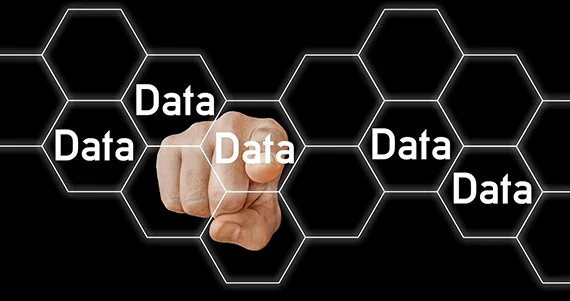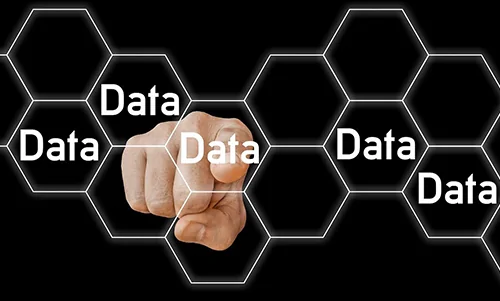Types of Integrations
With the advent of the Cloud, the use of best-of-breed, 3rd party applications has increased dramatically, with many such services operating on a global scale and available online through a variety of mechanisms.
No business function operates in a vacuum – there are always touchpoints with the wider world. This is also true of business applications, each of which will typically require inputs from some systems, whilst providing outputs to others. In today’s data-centric world, the successful integration of systems is a key factor, both in terms of your business’s efficiency and additionally as part of a requirement to maintain data consistency and integrity across your organisation.
With the advent of the Cloud, the use of best-of-breed, 3rd party applications has increased dramatically, with many such services operating on a global scale and available online through a variety of mechanisms.


often a mix of specialist, 3rd Party Providers such as JustGiving and Enthuse, an organisation’s own website, 3rd Party Subscription Services (for collection of Direct Debits or Recurring Credit Card Payments), Point-of-Sale and e-Commerce solutions, all tied together through Payment Gateways such as Stripe.
these could be regulatory submissions of VAT, or revenue-generating submissions of Gift Aid Claims to HMRC, or the publication of regional metrics to your parent organisation.
these are often bi-directional. A common example in the non-profit sector is in relation to CRM/Finance integrations, where the front-of-house CRM application will record income at Supporter-level against such things as Campaign, Appeal or Fund. When integrating to a Finance system, a level of aggregation is typically required. The Finance system would usually act as master for all outgoing expenditure, leading to a requirement to make such data available to users of the CRM solution, thereby enabling Return-on-Investment (ROI) calculations per campaign, appeal etc. In this particular case, we would often recommend such data be integrated to a dedicated reporting platform (alongside incoming CRM data), as part of a strategic view of your organisation’s data. This would incorporate any additional sources of data, both internal and indeed external (for example, through published demographics from organisations such as The Office of National Statistics).
Given that integrations typically run as a background process, it is important that they can execute without failure, even when the source data is not what it should be. When issues are encountered, it is equally important that they can be clearly communicated to the relevant personnel, allowing requisite review, correction and even rejection.

Data arriving through an integration should be assessed and processed in the same way as equivalent data generated through other channels, for example via direct entry.

Your organisation’s requirement for integrations will evolve over time – functional requirements will change, new data sources will be added etc. As such, it is imperative that any solution should facilitate such evolution; at mhance we ensure ease of maintenance and extension in two ways:
– We avoid proprietary codebases, instead utilising industry-standard, low-code technologies (atop the Microsoft Azure platform). In addition to avoiding any “lock-in” to mhance, this also facilitates our clients in terms of technical self-sufficiency. As part of this commitment, mhance will actively work with clients to co-develop Azure-based solutions, minimising costs for the client (through maximum utilisation of client resources), whilst simultaneously providing the ideal platform for future self-sufficiency.
– We also architect our solutions in a loosely-coupled manner, avoiding point-to-point integrations wherever possible. In addition to reducing the overall number of integrations required and improving traceability/robustness, this approach clearly separates the solution into logical elements, aiding division of labour and thereby further facilitating co-development.

As your organisation grows, the volumes of data you process will inevitably increase. Our integrations are designed to accommodate significant increases in magnitude. Coupled with the ability to scale the underlying Azure platform elements as you need them, we can work with you to ensure that optimal levels of performance are maintained.

Our clients have varied requirements in this area which can encompass such things as validation, triage, contact matching and reconciliation of data, prior to posting to the destination application. This is a key area, where our extensive experience and consultative approach can be hugely beneficial.

We work with clients to assess the wider landscape for any integrations:
– Should they be immediate, or can they be delayed?
– How can we minimise the impact on production systems?
– What execution windows are available to us?
– Which types of connectivity need to be supported – files, API’s etc?

When working with clients, we can offer specific builds, for a defined range of integrations, or a more comprehensive Integration Platform. We can also offer support for any requirements in terms of Phased Go-Lives, through such things as Master Data Management (MDM). This is an approach which involves creating a single master record for each person, place, or thing in an organisation removing duplication to produce a trusted view of business-critical data that can be managed and shared across the organisation as a single, consistent, reliable source.
